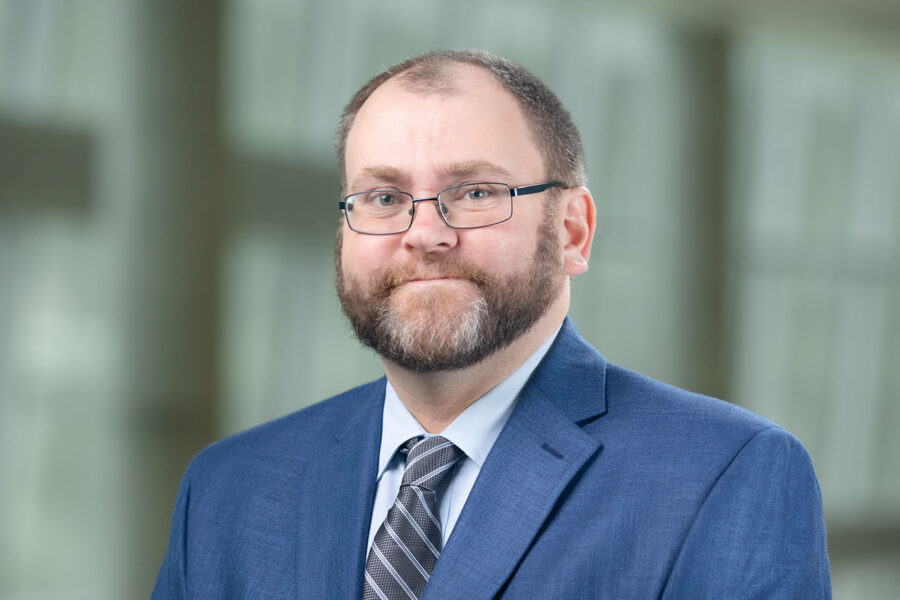Paul Trippier, PhD, associate professor of pharmaceutical sciences, is a medicinal chemist focused on small molecule drug discovery. That means he and his team can build or tweak compounds. He likes to make the comparison that chemists work on compounds the way an especially inspired kid might use a Lego set.
Snap a block here. Make another connection there. And you can build all sorts of wonders.
“The beauty of being a chemist,” Dr. Trippier said, “is we can apply our chemistry to any particular disease. We just need a protein target, and we can go after it.”
And that’s how Dr. Trippier came to be honored with this year’s Vada Kinman Oldfield Award for Research in Alzheimer’s disease.
Dr. Trippier and his team regularly work on cancer and neurodegenerative diseases. “A lot of it is finding interesting protein targets, especially targets that haven’t been tried before that we think we can apply our chemistry to,” Dr. Trippier said.
In doing so they came upon 17beta-hydroxysteroid dehydrogenase type 10 (17beta-HSD10). It’s “a mouthful,” Dr. Trippier said. And it was a potential answer.
The enzyme 17beta-HSD10 binds to a protein known to aggregate in the brains of Alzheimer’s patients, Dr. Trippier said. This binding stops the enzyme from working as it should. The literature suggests that the enzyme not working normally may lead to three major hallmarks of Alzheimer’s disease.
The team worked to create compounds that bind the enzyme target and prevent the disease-associated protein from doing so — “really get in there as early as possible in Alzheimer’s and prevent the toxicity,” Dr. Trippier said.
“So, we should hopefully have a protective effect.” And? “We’ve shown this in a number of cell lines and some (small animal model) neurons, as well, that this works.”
It was a breakthrough worthy of the Kinman Oldfield Award.
The honor is named for Vada Kinman Oldfield, a University of Nebraska-Lincoln alumnus, World War II military veteran, artist and philanthropist. When stricken with Alzheimer’s in her late 70s, she immediately enrolled in a clinical trial to advance science in the search for a treatment. She maintained her fighting spirit through an 11-year struggle with the disease. Her husband, Col. Barney Oldfield, carried on her work until his death in 2003.
Vada Kinman Oldfield’s legacy lives on through education, programs and research, including at UNMC.
The team is proud to carry on this legacy and excited about the potential of this discovery, Dr. Trippier said.
But it’s not a treatment yet.
“From an idea to the clinic takes about 20 years, give or take. We’re probably in the four- or five-years stage. If you want to add 15 years to that, it’s certainly possible, down the line, hopefully.”
In the meantime, they will keep looking for targets and working on wonders to build.

Congrats Dr. Trippier!
Congratulations on this award Dr. Trippier.!!
Many congratulations Dr. Trippier!!
Congratulations Dr. Trippier! I certainly enjoyed your recent talk at the Surgery Research Forum.
Great news – congratulations Paul!!
Congratulations, Paul!!!
Congratulations Dr.Trippier! I wish you continued success in all your future research.
Congratulation Paul on this well deserved honor.
Congratulations Paul, you make the College of Pharmacy proud!